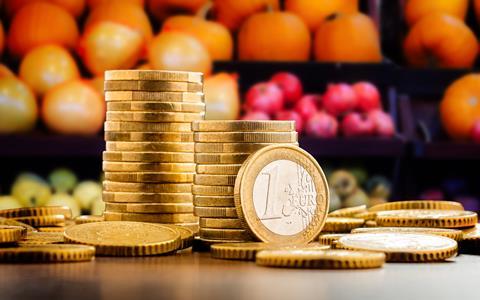The organisation has sent a letter to the EC warning that the proposed redeployment of existing funds away from promotional activities could threaten the competitiveness of European fruit and vegetables
Freshfel Europe, on behalf of the European fresh produce sector, has submitted a letter responding to the EU Commission’s proposal to drastically reduce the agricultural promotion policy budget over the next three years.

The proposal will see a cut of €281.7m, resulting in a total budget reduction of over 50 per cent for the CAP policy.
The industry body said that the budgets for ‘multi programmes’, which involve multiple member states as well as the Commission’s own promotion projects in third countries, had been scrapped entirely, only leaving in place the so-called ’simple programmes’.
Freshfel expressed concern regarding the impact this would have on the EU fresh produce competitiveness and the continuity of essential promotion and marketing activities co-funded by the EU budget.
“While the EU decreases its promotion budget, global competitors such as the USA continue to invest millions to promote American food and farm exports,” said Philippe Binard, general delegate of Freshfel Europe. ”This underscores the urgent need to keep a strong EU promotion policy to maintain our competitive edge globally.”
A lacklustre promotion policy would also significantly and negatively impact the EU’s efforts to inform society and consumers about health and environmental issues relating to food diet, it said.
The latest estimation of daily fruit and vegetable consumption level is at 340g per person. This is well below the WHO minimum health recommendations of 400g, driven by healthy diet considerations to address the challenges of non-communicable diseases and obesity.
Furthermore, the Nordic Council has recommended reaching a minimum daily consumption of 800g of fruit and vegetables: 400g for health benefits and an additional 400g to offset negative environmental impacts.
Freshfel noted that the EU’s promotion policy and its co-funding opportunities were essential for sustaining much-needed promotion and information activities to communicate about the high health benefits and the low environmental impact of fresh fruit and vegetables.
”The role of fresh produce as ’essential’ and ’public goods’ needs to be properly voiced,” it continued.
With these challenges in mind, Freshfel Europe said it was ”highly concerned” about the disproportionate decreases in the promotion policy budget, especially for multi-programme projects.
The fresh produce sector had always showed a strong and growing interest in participating in multi programme projects across all EU member states, as demonstrated by the 52 er cent increase in applications between 2023 and 2024.
“In a time of growing geopolitical instability, with economic uncertainty impacting consumers’ purchasing power and attitudes, and the need to promote the social and environmental benefits of fresh fruit and vegetables, it is crucial for the EU’s fresh produce sector to be well supported in a more cogent, cohesive, and coherent manner than has been proposed,” Binard commented.
Freshfel said that the Commission was ”once again demonstrating a lack of consistency, coherence, and ambition to accompany the Green Deal strategy towards a plant diet”.
It was also significantly undermining its desired transition towards a more sustainable food chain, it said, particularly as the budget was one of the only tools that could drive consumer attitudes towards a better diet, in alignment with the Farm to Fork strategy and Europe’s Beating Cancer Plan.
“This is a very short-term vision,” Binard outlined. ”This approach by the Commission ignores the indirect long-term huge financial burden on the healthcare systems due to unhealthy diets.
”The World Economic Forum estimates that €2 is needed for each €1 spent on food to remedy the cost of an inappropriate diet.
“This budget redeployment is not only a very bad management choice in regard to the return on investment and efficiency of the promotion policy, but it will be financially very detrimental in the medium to long term for society,” he added.
Freshfel called on the Commission to review its position and not to undermine the effectiveness of a popular policy of its CAP.
”With the proliferation and acceleration of multiple crises impacting the agricultural sector, a strong promotion policy remains more relevant than ever for both the internal and international markets.”



